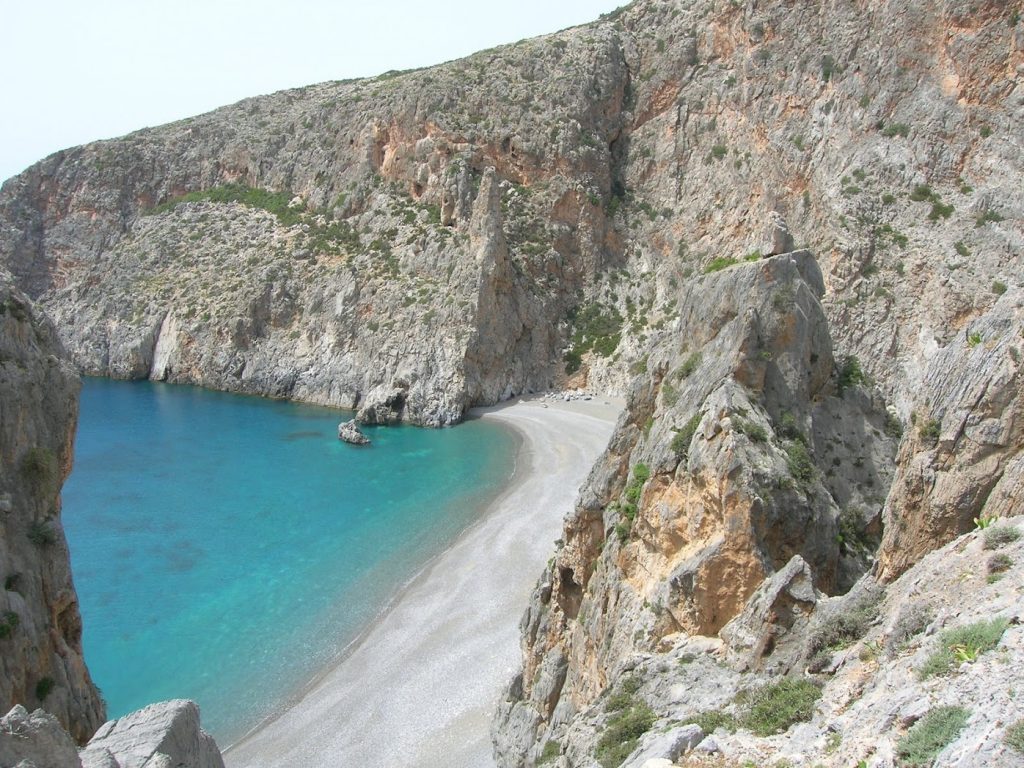European Research: Biodiversity computing in the “hotspot” Crete
Bioinformatician Alexandros Stamatakis (HITS Heidelberg and KIT Karlsruhe) will receive funding of 2.4 million euros from the European Commission for an ERA Chair (European Research Area). With this, he will establish computational biodiversity research at the Institute of Computer Science of the Foundation for Research & Technology – Hellas (ICS-FORTH) on Crete, Greece, working closely with local institutions on the island.
The Greek island of Crete is not only a sanctuary for sun-seekers but also a biodiversity “hotspot” due to its high biodiversity and large number of endemic species. Monitoring, assessment and quantification of biodiversity are therefore of great importance, and bioinformatics plays a key role in this. To strengthen biodiversity research in Greece and at the same time reverse the brain drain of Greek researchers, Alexandros Stamatakis, group leader at the Heidelberg Institute for Theoretical Studies (HITS) and professor for High Performance Computing at the Karlsruhe Institute of Technology (KIT), will establish a new research group on Crete at the Institute of Computer Science of the Foundation for Research & Technology – Hellas (ICS-FORTH). For this purpose, he will receive funds of 2.4 million euros from the European Commission for a period of five years, a so-called ERA Chair (European Research Area).
New research group to attract young scientists
The new “Biodiversity Computing Group” will start its work in early 2023 and will collaborate closely with two local biodiversity research centers: the Hellenic Center for Marine Research (HCMR) and the Natural History Museum of Crete (NHMC). The Computational Molecular Evolution research group at HITS led by Stamatakis and the KIT computer science faculty are also involved in the research. The goal is to develop novel and energy-efficient tools, algorithms, and models to assess biodiversity in a European biodiversity hotspot. The project will fund several postdocs and PhD students working on all methodological aspects of biodiversity computing. Topics such as viral evolution, high performance computing, and uncertainty assessment for biodiversity data analysis will be addressed. Alexandros Stamatakis will permanently move to Crete for the duration of the project.
International cooperation for outstanding research and teaching
“The ERA Chair for our group leader Alexandros Stamatakis is further evidence of his outstanding position at the interface between biology and computer science” said Frauke Gräter, scientific director of HITS. “He has been among the most highly cited researchers for years, and the phylogenetic software he and his group have developed is among the most widely used programs for this purpose. We also look forward to working with the Greek partners.”
“To protect our environment, international cooperation is absolutely necessary – also and especially in the field of biodiversity. After all, we will only find global solutions if we conduct research beyond national borders,” says Professor Oliver Kraft, Vice President for Research at KIT. “The ERA chair for Alexandros Stamatakis honors his excellent achievements in research. With his expertise, he not only strengthens biodiversity research in Greece, but also international networking with institutions such as KIT and HITS.”
“It is great to return to Crete, where I did my first postdoc at FORTH 16 years ago,” said Alexandros Stamatakis. “I am especially looking forward to interdisciplinary research with the excellent institutes at FORTH, but also with NHMC and HCMR. I am also grateful to KIT and HITS, who have supported this endeavor, and to HITS for continued funding my Computational Molecular Evolution group at the Institute. This all contributes to strengthening biodiversity research in Greece, while helping to prevent brain drain and deepening institutional links.”
Alexandros Stamatakis’ relationships with Cretan research institutions, however, continued after his PostDoc. He has been organizing a regular biennial summer school on computational molecular evolution at HCMR in Crete, funded by EMBO (European Molecular Biology Organization) and HITS, for over ten years.
ERA Chairs
The European Commission supports the further development of institutes and the expansion of research capacity through the establishment of European Research Area (ERA) Chairs. ERA Chairs help universities or research institutions from eligible countries to attract and retain highly qualified individuals and support excellent scientists and their teams.
The funded project is also in line with the European Commission’s Diversity Strategy 2030 “Bringing nature back into our lives.”
Scientific Contact:
Prof. Dr. Alexandros Stamatakis https://www.h-its.org/people/prof-dr-alexandros-stamatakis/
Media contact:
Dr. Peter Saueressig (HITS)
https://www.h-its.org/people/dr-peter-saueressig/
Sandra Wiebe (KIT)
https://www.sek.kit.edu/presse_team_wiebe.php
About HITS
HITS, the Heidelberg Institute for Theoretical Studies, was established in 2010 by physicist and SAP co-founder Klaus Tschira (1940-2015) and the Klaus Tschira Foundation as a private, non-profit research institute. HITS conducts basic research in the natural, mathematical, and computer sciences. Major research directions include complex simulations across scales, making sense of data, and enabling science via computational research. Application areas range from molecular biology to astrophysics. An essential characteristic of the Institute is interdisciplinarity, implemented in numerous cross-group and cross-disciplinary projects. The base funding of HITS is provided by the Klaus Tschira Foundation.
